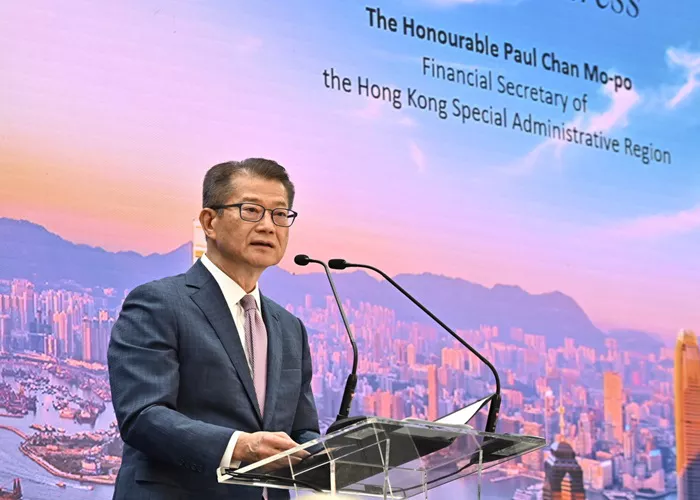Hong Kong’s Financial Secretary, Paul Chan, condemned the United States’ recent tariffs, describing them as “fundamentally wrong” on political, economic, and historical grounds. Chan’s remarks came after U.S. President Donald Trump unexpectedly delayed the imposition of “reciprocal tariffs” on key trading partners, which had taken effect only hours earlier.
Despite the delay, the tariffs remain in place at a 10 percent baseline, continuing to impact global trade relations.
“These sweeping tariffs are disrupting global supply chains, inflating costs for businesses and consumers, and creating significant uncertainty in cross-border investments,” Chan stated. He warned that while the term “economic nuclear winter” may seem extreme, the challenges posed to the global trading system are unprecedented in the past century.
Chan also highlighted the broader consequences of the tariffs, noting that ordinary Americans will face higher costs for groceries and daily necessities as a result. He predicted the eventual formation of three major trading blocs: one in the Asia Pacific, another grouping India, the Middle East, and Europe, and a third in the Americas.
In response to the tariffs’ impact, Chan suggested that China, a major global economic power, could introduce stimulus measures, given its substantial policy space and resources. “Our country has made its stance clear: we are open to resolving trade conflicts through dialogue based on mutual respect, not intimidation,” he said.
Addressing concerns about the Hong Kong financial market, Chan reassured that the city remains resilient, despite increased market volatility. Trading activity remains robust, and the local currency continues to perform strongly. “All margin calls were met on time, and no signs of stress have been detected,” he added.
Chan further emphasized that Hong Kong’s de facto central bank, the Hong Kong Monetary Authority (HKMA), has set aside more than HK$50 billion to support liquidity for small and medium-sized enterprises (SMEs). He also highlighted the city’s continued efforts to attract strategic enterprises, noting that over 80 companies have invested approximately US$60 billion in Hong Kong, creating about 20,000 jobs.
Chan concluded by reaffirming Hong Kong’s commitment to navigating these global challenges with vigilance and flexibility, ensuring the city remains well-prepared for any necessary interventions.
Related topics:
- India Surpasses China in Gold Purchases, Buying 51% More in Three Months
- Qilu Bank Enhances Support for Small Businesses with Innovative Financial Tools
- Bitcoin Poised for a Surge Amid Gold’s Delivery Delays, Expert Claims


